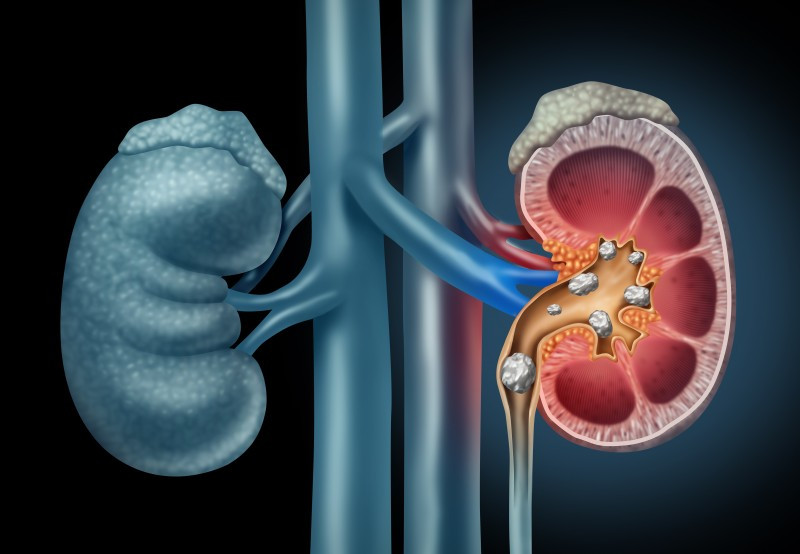Kidney stones are formations that, once formed, can be disruptive and painful. The formation of kidney stones is largely precipitated by certain dietary and nutrient factors. Here is a look at kidney stones, and some supplements that could help prevent them.
What Causes Kidney Stones?
Urine is one of the two primary waste products produced by the body, and it contains a mixture of salts and minerals. The kidneys also control the blood levels of sodium, potassium, calcium, and other minerals. Kidney stones are formations of these minerals. Once formed kidney stones usually present certain symptoms, namely a sharp, cramping pain in the back/side that moves down to the groin, and comes in waves. Frequent, painful urination is also common. Kidney stones are also painful when they pass out of the body since they travel through the urethra. This can be especially painful for men.
Most kidney stones are calcium stones, with most consisting of calcium oxalate, and a minority composed of calcium phosphate. Less than 10% of kidney stones consist of uric acid. Struvite stones are another less common type that occur due to chronic urinary conditions, and cystine stones are a rare type that also come from a certain health condition. These two types are not the focus of this article, however.
Treatments for kidney stones vary. Many stones pass without any complications. A stone less than 5mm in diameter is most likely to pass, while stones between 5-10mm have a roughly 50% chance of passing. Stones that are too large to pass might be addressed by a medication that makes it easier to pass a kidney stone. There are also surgical procedures to break up and help rid kidney stones, which are usually not invasive.
Supplements to Prevent Kidney Stones
The consumption of certain minerals and compounds can influence the bodily conditions and reduce the likelihood of developing a kidney stone. Each of the following supplements have properties or bodily interactions that can work against the formation of kidney stones.
Calcium: Taking calcium, despite it being a primary ingredient in kidney stones, can help decrease the risk of kidney stones forming. Calcium that is consumed alongside oxalate will bind with the oxalate molecules in the stomach. That means neither of them is likely to enter the kidneys. In turn, calcium is less likely to build up in the kidneys.
Magnesium is also believed to help prevent the formation of calcium oxalate kidney stones. There is scientific evidence to support this benefit of magnesium. There is still debate over how exactly magnesium prevents kidney stones, but some scientists believe that magnesium influences oxalate absorption in the gut. Magnesium could potentially help a large portion of people, because many people are deficient in magnesium.
Vitamin B6 has been shown to be helpful to some people who tend to develop calcium stones, by inhibiting the concentration of oxalate in the urine. It is most helpful when taken alongside magnesium.
Potassium citrate is a compound that could help prevent calcium stones, as well as uric acid kidney stones. It works against calcium stones by raising citrate levels in urine, and it also makes urine more alkaline. Potassium citrate is contained in some mineral complex supplements, alongside magnesium and other minerals.
A probiotic supplement containing Lactobacillus acidophilus is a good complement to other kidney stone preventatives, in that it bolsters gut and gastrointestinal health. The bacteria that occupy the gut will affect gut health, as well as immune system function and other bodily processes. A healthy balance of particles in the gut could affect kidney function, since kidneys work to monitor and balance the levels of various substances in the blood, which are absorbed within the intestinal tract.
If you or a family member has experienced kidney stones, then you know the value of preventing them. Consider if the above supplements are worth taking; At least one of them is bound to be a valuable dietary measure to reducing the chances of developing a kidney stone. Talk to your healthcare provider before trying any of these supplements.

